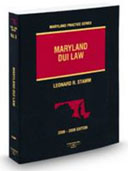This week a jury found Casey Anthony not guilty of murder of her daughter Caylee. It was the right verdict. The prosecution failed to prove the cause of death, when Caylee died, how she died. The jury could not say whether Caylee died accidentally or was murdered. The jury could not find that an adult was responsible for Caylee’s death, or if an adult was responsible, who was responsible. At best, they could find that it was possible that Caylee was murdered by Casey. In our system of justice, the jury must find guilt unanimously and beyond a reasonable doubt. The evidence didn’t support a guilty verdict in the Casey Anthony case. The jury got it exactly right.
Alan Dershowitz wrote an excellent piece on this in the Wall Street Journal. He talks about the concept in our law that as a society we have made a value judgment that it is better to let 10 guilty persons go free than it is to convict one innocent person. This is one of my favorite legal quotes:
Indeed, concern about the injustice that results from the conviction of an innocent person has long been at the core of our criminal justice system. That concern is reflected, for example, in the ‘fundamental value determination of our society that it is far worse to convict an innocent man than to let a guilty man go free.’ In re Winship, 397 U.S. 358, 372, 90 S.Ct. 1068, 1077, 25 L.Ed.2d 368 (1970) (Harlan, J., concurring). See also T. Starkie, Evidence 756 (1824) (‘The maxim of the law is … that it is better that ninety-nine … offenders should escape, than that one innocent man should be condemned’).
It is from an opinion by Justice Stevens in Schlup v. Delo, 513 U.S. 298, 325 (1995), and can be traced back, as it was in Dershowitz’s article, to the biblical story of Abraham arguing with God that Sodom should not be destroyed if ten innocent people would be condemned.
There are a couple of points to be made here. Because we, as Americans, do not want even one person to be convicted if actually innocent, we have created a very high burden of proof for the State, proof beyond a reasonable doubt. The Casey Anthony jury properly applied that standard, and as some post-trial interviews have shown, they were not very happy about it – but remained faithful to the instructions they received. Even if they thought is was only likely that Casey Anthony killed Caylee, they were required to acquit. There is a parallel between what happened in the Casey Anthony trial and what happens in many drunk driving trials, the State fails to prove their case beyond a reasonable doubt.
In many drunk driving cases there is evidence that the accused consumed alcohol, evidence of bad driving, evidence of problems doing balancing tests. But there is often only a superficial effort by the officer to investigate other possible explanations for these observations such as mechanical problems with the car, medical explanations for what appears to be impairment, exhaustion where the stop occurs in the early morning hours. The officer could do a detailed interview at the beginning of the stop, asking questions such as whether there are any mechanical problems with the car, how long the driver has been awake, what medical problems the driver has, and what the precise drinking history is. This is rarely done. So while the officer’s investigation leads to a conclusion that includes the possibility or even a likelihood that the driver was impaired by alcohol, the investigation fails to exclude the possibility of innocence that the car had mechanical problems, the driver had medical problems, or was simply exhausted. So just like the jury in the Casey Anthony case, where it was possible she was guilty but not proven beyond a reasonable doubt, in many DUI cases the correct application of the reasonable doubt standard also requires a not guilty verdict.
If you are facing serious criminal or traffic charges in Maryland call Leonard R. Stamm or Johanna Leshner of Goldstein & Stamm, P.A. at 301-345-0122 for a free consultation.
Leonard R. Stamm
Goldstein & Stamm, P.A.
6301 Ivy Lane, Suite 504
Greenbelt, Maryland 20770
www.lstamm.com
301-345-0122
(fax) 301-441-4652
Author: West’s Maryland DUI Law

 Maryland DUI Lawyer Blog
Maryland DUI Lawyer Blog

